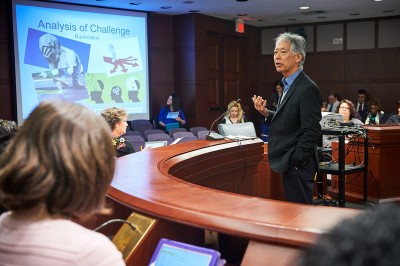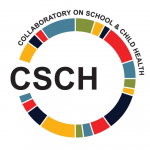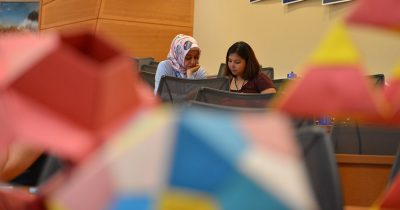Learn about research centers housed at or affiliated with the Neag School.
Center for Behavioral Education and Research (CBER)
The Center for Behavioral Education and Research is a research and education Center in the Neag School of Education that conducts and disseminates rigorous research that improves educational and social outcomes for all children and youth in schools in the areas of Positive Behavior Support, Behavior Disorders, Literacy, School Psychology and Special Education. CBER prepares personnel for the application of evidence-based academic and behavior practices and systems in schools.

UConn Center for Education Policy Analysis, Research, and Evaluation (CEPARE)
The University of Connecticut Center for Education Policy Analysis, Research, and Evaluation is a member of the Education Policy Alliance, a nationwide network of university-based research centers and organizations. The mission of CEPARE is to inform educational leaders and policymakers on issues related to the development, implementation and consequences of education policies. CEPARE examines policies through multiple perspectives, paying particular attention to the impact of policies on social justice and educational equity across P-20 educational settings.
UConn Center for Excellence in Developmental Disabilities Education, Research and Service (UCEDD)
The University of Connecticut Center for Excellence in Developmental Disabilities Education, Research and Service (UCEDD), led by Neag School/School of Medicine joint faculty member Mary Beth Bruder, is authorized by the Developmental Disabilities Assistance and Bill of Rights Act of 2000 (DD Act). The purpose of the DD Act of 2000 is to assure that individuals with developmental disabilities and their families participate in the design of and have access to needed community services, individualized supports, and other forms of assistance that promote self-determination, independence, productivity, integration and inclusion in all facets of community life, through culturally competent programs.
Collaboratory on School and Child Health (CSCH)
The University of Connecticut Collaboratory on School and Child Health Center (CSCH), led by Board of Trustees Distinguished Professor Sandra Chafouleas in the Department of Educational Psychology, seeks to facilitate innovative and impactful connections across research, policy, and practice arenas relevant to school and child health. CSCH serves as a central resource to University and external partners engaged in efforts that inform healthy, safe, supportive, and engaging environments for all children.
National Center for Research on Gifted Education
The National Center for Research on Gifted Education (NCRGE) in the Neag School of Education is the only national center on gifted education funded by the federal government. With funding authorized through the Jacob K. Javits Gifted and Talented Students Education Act, the Institute of Educational Science in the U.S. Department of Education launched the National Center for Research on Gifted Education to identify districts and schools that show high-achievement growth rates among gifted students, including those from underserved groups; and to explore how these sites successfully identify, serve, and retain students from underrepresented groups in gifted programs.
OSEP Center on Positive Behavioral Interventions and Supports (PBIS)
The Technical Assistance Center on Positive Behavioral Interventions and Supports (PBIS) is established by the U.S. Department of Education’s Office of Special Education Programs (OSEP) to define, develop, implement, and evaluate a multi-tiered approach to Technical Assistance that improves the capacity of states, districts, and schools to establish, scale up, and sustain the PBIS framework. Emphasis is given to the impact of implementing PBIS on the social, emotional, and academic outcomes for students with disabilities. The OSEP PBIS Center is co-directed by Rob Horner at the University of Oregon, George Sugai at the University of Connecticut, and Tim Lewis at the University of Missouri. At the University of Connecticut, PBIS activities are coordinated and supported by other research scientists (co-principal investigators Brandi Simonsen, Jennifer Freeman, and Tamika La Salle) from the Center on Behavioral Education and Research (CBER).
Reading and Language Arts Center
The Reading and Language Arts Center serves as a coordinating agency for the improvement of literacy instruction and literacy teacher education from the undergraduate through the doctoral levels. The center's faculty provides graduate programs and courses within the Department of Curriculum and Instruction that offer concentrations in reading and language arts, including programs that lead to state certifications. It is the intent of the Reading-Language Arts Center faculty to develop professionals with leadership potential who are prepared to improve reading and language arts instruction in Connecticut's schools.
Renzulli Center for Creativity, Gifted Education, and Talent Development
The Renzulli Center for Creativity, Gifted Education, and Talent Development is a leader in research focused on meeting the needs of gifted, creative, and talented students, with studies that have received national and international attention for more than 40 years. Several studies conducted by the Center's research team are considered seminal research that guides the design and development of programs and services to meet the needs of gifted and talented students.
Renzulli Center for Creativity, Gifted Education, and Talent Development Website →

